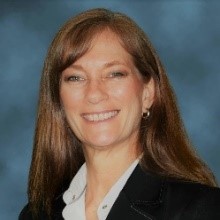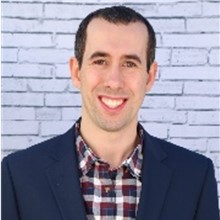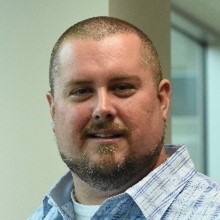Webinar Overview
Preparing for the Future: Collaborative ADS and IOO Framework
Date: Tuesday, May 9, 2023
Time: 1:00 P.M. - 2:30 P.M. ET
Cost: All T3 webinars are free of charge.
PDH: 1.0 | View PDH Policy

T3 Webinars are brought to you by the ITS Professional Capacity Building Program (ITS PCB) at the U.S. Department of Transportation’s (USDOT) ITS Joint Program Office (JPO). Reference in this webinar to any specific commercial products, processes, or services, or the use of any trade, firm, or corporation name is for the information and convenience of the public, and does not constitute endorsement, recommendation, or favoring by the USDOT.
Background
Steve Jobs once said, “Great things in business are never done by one person; they’re done by a team of people.’ Nowhere is that truer than with the work that has been created to support the integration of automated driving systems into our road network. FHWA’s Office of Transportation Management, in collaboration with the ITS JPO, developed a tool to encourage collaborative research and testing among automated driving system (ADS) developers and infrastructure owners and operators, Collaborative Research Framework for Automotive Driving System Developers and Infrastructure Owners and Operators (IOO), “the Framework.” During the research and development portion of creating the Framework, industry, private organizations, media, and other stakeholders were engaged. Input indicated the importance of collaboration when undertaking research and testing, as it leads to a safe system approach as automation advances in the vehicles on our road network.
To accomplish Roadway/ADS integration, more Roadway/ADS collaboration is needed, including dedicated and active outreach and discussion about the Collaborative ADS/Roadway Research Framework. The FHWA Office of Transportation Management and ITS JPO are promoting the use of the Framework. This webinar is one mechanism that is being used to raise awareness of the Framework—to increase understanding of the goals of collaboration when testing, and ultimately to have those developing these systems use the principles in the Framework.
Hear from the team that developed the Framework about the benefits of using it, the goals and details of the Framework, how to foster stakeholder collaboration, address concerns and needs, and define collaboration elements in the research and testing process. The presenters will also discuss the Framework’s nine overarching themes. This webinar will also include presentations from those actively involved in collaborative testing.
Target Audience
The target audience for this webinar will include those involved in testing, simulation, evaluation, and/or running pilots of vehicles equipped with ADS: transportation professionals, including local, State, or Federal Departments of Transportation; ADS developers; original equipment manufacturers (OEMs); test engineers; researchers; policymakers; and any other individuals or entities involved in the testing, piloting, or evaluation of ADS-equipped vehicles.
Learning Objectives
- Provide the framework to foster testing collaboration among ADS developers and IOOs, including the overarching themes that support the test environment, a shared vocabulary or taxonomy, and a high-level discussion of data in the testing process.
- Share real-word examples and peer-to-peer experiences regarding collaborative Roadway/ADS testing activities.
- Establish the collaborative framework vision and readily identify opportunities to collaborate during testing, evaluation, and pilot activities.
Host
John Harding, USDOT/FHWA Office of Transportation Management, Connected/Automated Vehicles and Emerging Technologies Team Leader
 Mr. Harding leads automated vehicle initiatives for FHWA that support the safe and effective integration of automated vehicles into the U.S. roadway system. Mr. Harding has expertise in all aspects of connected and automated travel, including vehicle connectivity, infrastructure, operations, institutional, policy, testing and evaluation, and regulations. Mr. Harding has worked on both the roadway and vehicle aspects of connected vehicle and automated vehicle issues. Mr. Harding holds a Bachelor of Science in civil engineering from the University of Pittsburgh and a Master of Public Administration from George Mason University.
Mr. Harding leads automated vehicle initiatives for FHWA that support the safe and effective integration of automated vehicles into the U.S. roadway system. Mr. Harding has expertise in all aspects of connected and automated travel, including vehicle connectivity, infrastructure, operations, institutional, policy, testing and evaluation, and regulations. Mr. Harding has worked on both the roadway and vehicle aspects of connected vehicle and automated vehicle issues. Mr. Harding holds a Bachelor of Science in civil engineering from the University of Pittsburgh and a Master of Public Administration from George Mason University.
Presenters
Martha M. Eddy, Battelle, Transportation Operations and Policy Program Manager
 Ms. Eddy has over 35 years of experience in the transportation and ITS/advanced and emerging transportation technologies fields. She is Battelle’s Program Manager for a number of BPAs with USDOT and is the Project Manager for the Collaborative Research Framework for ADS Developers and IOOs. Ms. Eddy has a Bachelor of Science in Industrial and Systems Engineering from Virginia Tech.
Ms. Eddy has over 35 years of experience in the transportation and ITS/advanced and emerging transportation technologies fields. She is Battelle’s Program Manager for a number of BPAs with USDOT and is the Project Manager for the Collaborative Research Framework for ADS Developers and IOOs. Ms. Eddy has a Bachelor of Science in Industrial and Systems Engineering from Virginia Tech.
Tim Seitz, Senior Research Engineer, Research Team Lead, Transportation Research Center Inc.
 Dr. Seitz has over seven years of experience working on Connected and Automated Vehicles (CAVs) and Advanced Driver-Assistance Systems (ADASs) in the Advanced Mobility group for Transportation Research Center Inc. The majority of this work is developing and conducting test plans, on which Dr. Seitz is responsible for research design and planning, data collection and statistical analysis, test execution, custom tool development, and modeling and simulation, for both connected and automated vehicles. Dr. Seitz has also overseen deployment of technology prototype automation and connectivity technologies on public roads for several other projects. In addition, he was contracted to NHTSA’s Vehicle Research and Test Center (VRTC), to develop standards to assess CAV safety.
Dr. Seitz has over seven years of experience working on Connected and Automated Vehicles (CAVs) and Advanced Driver-Assistance Systems (ADASs) in the Advanced Mobility group for Transportation Research Center Inc. The majority of this work is developing and conducting test plans, on which Dr. Seitz is responsible for research design and planning, data collection and statistical analysis, test execution, custom tool development, and modeling and simulation, for both connected and automated vehicles. Dr. Seitz has also overseen deployment of technology prototype automation and connectivity technologies on public roads for several other projects. In addition, he was contracted to NHTSA’s Vehicle Research and Test Center (VRTC), to develop standards to assess CAV safety.
Nick Hegemier, Managing Director of Infrastructure, DriveOhio
 Mr. Hegemier is currently the Managing Director of Infrastructure for DriveOhio, a center formed within OhioDOT to focus on Smart Mobility. His current duties include the development of standards for connected and automated vehicles to be deployed in the State. He is involved in many national CAV efforts, including leading the AV Pooled Fund Study and is a Board member for ITS Midwest as well as the OmniAir Consortium, a global certification entity for technologies, including connected vehicles. Mr. Hegemier received his degree in Electrical Engineering from Ohio State University and has over 21 years of Intelligent Transportation System experience.
Mr. Hegemier is currently the Managing Director of Infrastructure for DriveOhio, a center formed within OhioDOT to focus on Smart Mobility. His current duties include the development of standards for connected and automated vehicles to be deployed in the State. He is involved in many national CAV efforts, including leading the AV Pooled Fund Study and is a Board member for ITS Midwest as well as the OmniAir Consortium, a global certification entity for technologies, including connected vehicles. Mr. Hegemier received his degree in Electrical Engineering from Ohio State University and has over 21 years of Intelligent Transportation System experience.
↑ Return to top